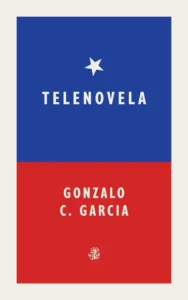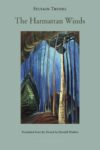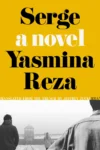
[Galley Beggar Press; 2025]
Creative struggle is not an uncommon subject for a novel. Still, it feels rare to come across a work that renders an artist’s ambitions not as some sublime effort against the threat of failure, but as obvious delusion in its aftermath. Gonzalo C. Garcia’s new novel, Telenovela, is one such work.
Telenovela is a book about many failures — marriage, parenthood, the Pinochet regime — but chief among them is a story of creative failure. Focalized, in interchanging chapters, through father, mother, and son, it follows a family’s relocation from the rural outskirts of San Fernando to Santiago, a “concrete ode to Chile,” at the tail end of the 1980s. Lucho has moved the household to take up a more prestigious government post, making inventories of the nation’s goods. Having publicly abandoned a youthful occupation with poetry in pursuit of an administrative career (and his father’s esteem), he returns to this writing only secretly, in the padlocked home office that holds his old notebooks. His wife, Ramona, has recently been hospitalized for depression and, having neither childcare responsibilities nor much of a relationship with her son, has little to structure her days beyond an extremely 1980s aerobics class she has been encouraged to attend for her health. She had studied to become an actress but found her ambitions crushed by a failed telenovela audition, which haunts her long after she chooses to abandon her dreams of stardom for motherhood. Their musically-inclined son, Pablo, privately rebels against his parents’ academic expectations, favoring a future of sold-out stadium shows despite his inability to sing if he suspects someone might be listening. Pablo’s youthful optimism seems only to highlight his parents’ sense of themselves as past the potentiality of a creative life, despite the sense we are given early that Pablo, too, is delusional, nursing impossible ambitions and destined to failure.
All three protagonists carry a certain melodramatic typicality: the repressed patriarch; the depressed housewife; the angst-riddled teen. Still, Garcia’s novel manages to resist cliché through the streaming, modernist prose style for which its publisher, Galley Beggar Press, is so known — the characters’ well drawn interiorities carry a mundanity that balances what could have been flatter types. There is formal experimentation, too. The narration is interrupted for each character by their respective art form (Lucho’s poetry; the screenplay of Ramona’s failed audition; Pablo’s music), although this is to mixed effect: for those unable to sight read music, the musical notation interrupting Pablo’s chapters reach us as little more than nice illustrations. Ramona’s running screenplay was, by contrast, particularly effective thanks to the book’s layout: occupying a square at the top of every right-facing page of her chapters, the inset telenovela reaches the reader as a flip book, flickering like her own projections.
The family’s individual and relational struggles are framed through the novel’s wider historical predetermination. It opens with an author’s note detailing the chronology of Chile’s 1988 referendum, in which the country voted against the continuation of Pinochet’s regime; this is immediately followed by an announcement of the novel’s setting in February 1987. In this eschatological structure, the pre-history of a fall, the family’s comfortable position is always teetering, perched upon decades of human rights abuses. Lucho is introduced as a cog in the regime, the son of an illustrious captain — “the hero, the leader, the man” — whose crimes are first assumed, then made clearer over the course of the narrative. When Lucho learns that the true purpose of his promotion is to locate and detain a well-known left-wing poet he admired in his youth, he faces the obvious impossibility of acceptance by both his father and his literary heroes.
Telenovela’s accounting of the militarily dictatorship comes from within the belly of the beast, which may be divisive for readers. Does the novel humanize fascists, showing them to be pathetic in both senses of the word? In a sense, yes. Lucho is not rendered without kindness. In his portrayal as a poet-turned-bureaucrat struggling with the trauma of his Marxist-sympathizing mother’s abrupt disappearance and a harsh, traumatized father, there is something of an attempt to show how or why someone might compromise their humanity to such an extent. We see how Lucho diverts his hero worship from poets to historical figures and funnels his creative impulses into patriotism, feeling “something heroic in how well he learnt to love and hate the right things.” Still, the novel feels less didactic than interested in how the violent delusions of the Pinochet regime, destined for failure, may be paralleled through delusions of a smaller scale. Rather than a victim of history, Lucho is drawn as a stand-in for it — voicing an optimism of national possibility fueled by the hyperbole of propaganda.
Lucho’s insecure belief in Chile’s bright future under the regime is matched by his wife’s unstable relationship to the world around her. If Ramona’s husband locks his artwork away in a padlocked room, she cannot escape fantasies of a world in which she is a beloved actress. Her daydreams of appearing as a guest on a well-known talk show coat her waking life, even as she dissects the structural barriers she faces in the entertainment industry, its agist and colorist beauty standards. When her exercise instructor dangles an audition and a second chance at her dreams before her, Ramona is shown to be vulnerable in the face of her unmet ambitions, ping-ponging between visions ruled by hope and by fear. (“She’s fine, she’s fine. POSITIVE THINKING fine. TRUE JOY, letting go blablabla.”) Despite the weight of the novel overall, Garcia often uses Ramona’s chapters to insert some slice of absurd levity: she purchases a red carpet leading from the front door to the bedroom, only to have the rug literally fall short, ending at the door to the bathroom.
Pablo feels the most locked away as a character, perhaps as a necessity to best render the confused, withdrawn teen in search of his voice. To a greater extent than Lucho could be considered a stand-in for the old Chile, his son’s perspective is primarily used to draw the rise of the new, as he stumbles into a left-wing creative scene vocally against the regime his father works to uphold. At points this generational conflict is extremely on the nose, as when Pablo uses the basement of the family home to host a new revolutionary artistic movement. In Pablo, the intersections of his parents’ creative ambitions with their love for each other is made literal through his love for his bandmate, Clara, who is also his friend’s girlfriend. Clara comes to supersede the art, becomes the reason for performing. Pablo searches to love and be loved much as his own parents have — through romance and art — and suffers, as his own parents have, by the downward pressures of inherited cowardice.
At one point, Lucho observes that literature must be “important,” must aspire to some political heft beyond its observations of quotidian life and quotidian love. Garcia seems similarly aware of this demand, or interested in this project. In layering a domestic drama onto this juncture in Chile’s history, Telenovela attempts to suture political and intimate concerns. While not always seamless, Garcia does manage to bridge these priorities and preoccupations. The novel, especially in its first half, is a character study of Chile itself: the idea of a nation, with secrets and ambitions, a soul torn in two. The second half of the book is more plotted, with tensions rising as love objects shift, mysteries are introduced, and new opportunities are teased. By the concluding chapters, the family itself has come into focus as an organizing principle, and the text tonally adopts the domestic melodrama of its namesake. When the narrative sinks, theatrically, into its historical and generic mandates, Telenovela links national and familial, political and personal tragedy. The optimisms and delusions of family, country, and art are all rendered potentially fatal leaps into the unknown.
Katie Deane is a PhD candidate in English Literature at the University of Birmingham.
This post may contain affiliate links.






